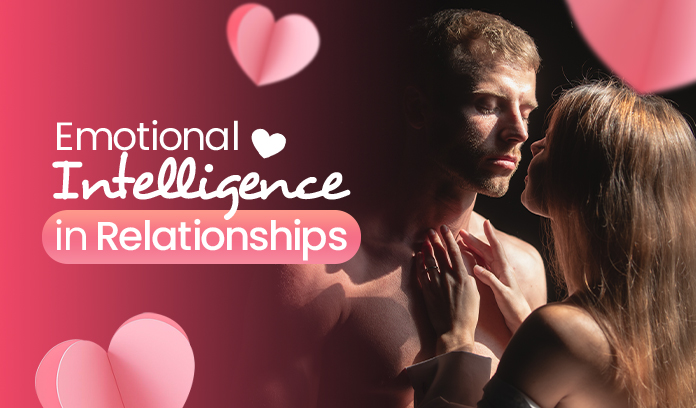In today’s fast-paced world, cultivating emotional intelligence (EI) is vital for nurturing healthy and fulfilling relationships. Emotional intelligence encompasses the ability to recognize, understand, and manage our own emotions while effectively navigating the emotions of others. Let’s delve into how EI can strengthen your relationships and empower you to foster deeper connections.
Empathy
Empathy is the ability to understand and share the feelings of another person. In relationships, emotional intelligence enables individuals to empathize with their partner’s emotions, validating their experiences and fostering a deeper connection.
Communication
Effective communication is crucial for building and maintaining healthy relationships. Emotional intelligence allows individuals to express their thoughts and feelings openly, listen attentively to their partner’s concerns, and resolve conflicts constructively.
Self-awareness
Self-awareness involves recognizing and understanding one’s own emotions, strengths, and weaknesses. In relationships, individuals with high emotional intelligence can identify their triggers, communicate their needs effectively, and take responsibility for their actions, leading to greater authenticity and intimacy.
Empathetic Listening
Empathetic listening involves paying attention to your partner’s verbal and nonverbal cues, validating their emotions, and responding with empathy and understanding. It fosters trust, emotional intimacy, and mutual support in relationships.
Emotional Regulation
Emotional regulation is the ability to manage and control one’s emotions effectively. In relationships, individuals with strong emotional intelligence can regulate their emotions during conflicts or stressful situations, avoiding escalation and promoting empathy and understanding.
Conflict Resolution
Conflict resolution skills are essential for navigating disagreements and misunderstandings in relationships. Emotional intelligence enables individuals to approach conflicts calmly, listen to their partner’s perspective, and find mutually satisfactory solutions, preserving the harmony and trust in the relationship.
Boundaries
Setting and respecting boundaries is crucial for maintaining healthy relationships. Emotional intelligence allows individuals to recognize their boundaries, communicate them clearly to their partner, and respect their partner’s boundaries, fostering mutual respect and trust.
Empathetic Support
Empathetic support involves offering emotional validation, encouragement, and understanding to your partner during challenging times. Emotional intelligence enables individuals to provide empathetic support by tuning into their partner’s emotions, offering reassurance, and being present for them when they need it most.
Conflict Management
Conflict management skills are essential for addressing disagreements and resolving conflicts in relationships. Emotional intelligence allows individuals to approach conflicts with empathy, understanding, and patience, seeking win-win solutions that strengthen the relationship.
Emotional Vulnerability
Emotional vulnerability involves being open and honest about one’s feelings, fears, and insecurities with your partner. Emotional intelligence enables individuals to express vulnerability without fear of judgment, fostering trust, intimacy, and emotional connection in the relationship.
Conclusion
In conclusion, emotional intelligence serves as a cornerstone for building and maintaining healthy, fulfilling relationships. By honing your EI skills and applying practical strategies for communication, empathy, and conflict resolution, you can foster deeper connections and greater intimacy with your partner. Remember, consult a medical professional before following any health advice or setting out a new health plan to ensure your well-being is prioritised.


